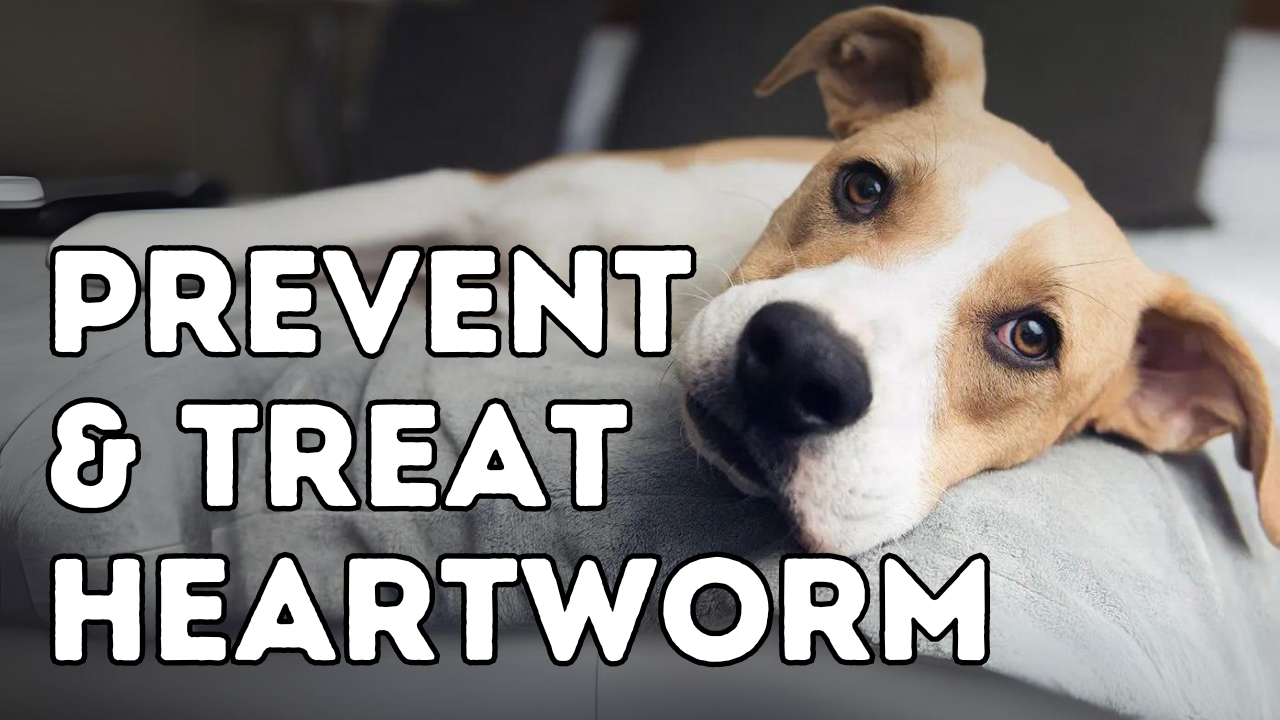Is It Safe to Use Natural Methods for Heartworm Prevention?

Worms give many people the ‘heebie jeebies’, and the last thing you want is to have your dog/cat having a worm in their heart…
Fortunately for most of us, the chance of this ever happening is incredibly unlikely, BUT I would suggest a supplement that can help keep your pet’s heart strong and functionally normally.
Omega 3 Fatty Acids are one of the few supplements documented maintain and potentially improve cardiac function.
We now have an Omega 3 Fatty Acid supplement in the form of Krill oil, which has a high level of the anti-inflammatory Essential Fatty Acids, EPA and DHA- also very beneficial for Allergies and Arthritis: Dr Jones’ ULTIMATE Omega 3 Supplement for Dogs and Cats


Heartworm: Is Medication Necessary?
Introduction to Heartworm Disease in Dogs
Heartworm disease—this term alone can strike fear into any pet owner’s heart. But what’s worse than a parasitic disease affecting the heart? According to the American Heartworm Society, many dogs leave the clinic without preventive care, suggesting a need for more widespread use of heartworm preventives. However, is this really necessary?
Understanding Heartworm
Heartworm, or Dirofilaria immitis, primarily affects dogs and is transmitted via mosquitoes. It’s a serious condition that can lead to death by primarily affecting the lung arteries and heart. Clinical signs, often delayed, include a cough, fatigue, and in severe cases, sudden death. Understanding the lifecycle of these parasites is critical, as transmission requires specific temperatures conducive to mosquito and parasite development.

Questioning Conventional Preventive Medication
As a veterinarian, one common question from pet owners concerns the necessity of conventional preventive medications. Traditionally, pet owners are instructed to administer monthly preventives. But let’s explore whether this is always necessary.
Incidence and Risk Factors
The real risk of heartworm disease varies significantly by geographical location. For instance, in Canada, the risk is relatively low. It’s crucial to assess the heartworm incidence in your area to determine if your pet is truly at risk.
The Debate Over Medication Side Effects
While most conventional heartworm preventives are deemed safe, there are increasing concerns about heartworm resistance and severe side effects, including allergic reactions and even death. This has led to the introduction of newer medications, which also come with their own risks.
Holistic Approaches to Heartworm Prevention
Emphasizing a strong immune system and natural prevention strategies can be effective alternatives to conventional medications.
Natural Health Measures
- Immune System Support: Avoid over-vaccination and unnecessary medications.
- Nutrition: Feed your dog high-quality, natural diets that support immune health.
- Mosquito Control: Use natural repellents like my homemade spray containing cedarwood oil, witch hazel, and essential oils which have shown effectiveness in studies.
Alternative Treatments
- Regular Testing: Simple and inexpensive, regular testing is crucial, especially if you opt-out of conventional preventives.
- Herbal and Nosode Options: Under the guidance of a holistic veterinarian, consider herbal supplements and nosodes.
Dr. Steve Marsden’s Heartworm Regimen
This herbal blend is designed to support heartworm prevention but should only be used under professional supervision to ensure proper dosing and to mitigate potential side effects.
If you reside in a high-risk area, short-term use of conventional preventives during peak transmission season might be necessary. However, integrating liver supportive products can help mitigate any adverse effects from these medications.
Heartworm disease is indeed serious, but not all dogs will require conventional preventive medications depending on their risk and environment. By understanding heartworm better and considering both conventional and holistic preventive strategies, you can make a more informed decision about the best approach for your pet.
Don’t forget about general heart health—supplements like Omega 3 Fatty Acids are vital. My Natural Krill Oil is a great source of these essential nutrients, offering superior absorption and purity compared to typical fish oil supplements.


Giving Revolution forever this is not just doubled in price last year to tripling this yr, I`m tired of know putting it on every feral cat my husband let in one showing hi the cat door causing my male to go somewere getting attcked over $3500 giving him another vax 3 minths after he just got his yearly vax. He`s now tramatized & sleeps on the niebours pourch thinking we`re either going to lock himin or take him to the vet.